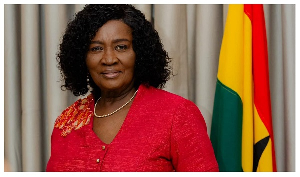The modalities in sending electronic communications to the consuming public are regulated by the National Communication Authority (NCA), whiles the power to operate as a financial institution is always sanctioned by the Bank of Ghana.
These authorities especially the NCA play key roles, in making it certain that, there is prudence in terms of clinging to stipulated codes governing how electronic advertisement (i.e. text messages) are disseminated to the consuming public.
However, recent occurrences coerce one to wonder whether these codified laws still exist in our treasured country, Ghana. What I mean is that the laws seem to be of little worth due to lack of enforcement.
Irrefutably, some financial institutions in Ghana including Ezwe Savings and Loans, IVest Savings and Loans, Bayport Financial Services among others, suffocate mobile phones of the Ghanaian government worker, more specifically, teachers, with unmerited loan advertisement messages. You could best ascertain the extent of the emotional wound, only if you happen to be a victim. It is extremely repugnant.
On the other hand, it would seem unfair to ignore the mention of the fact that, the NCA, the Mobile Network Operators, and the Value Added Service Provider, discussed the menace decades past. But, how prolific has it been since then? Our mobile phones continue to get flooded by unsolicited loan advertisement text messages daily. Authorities seem not to be in the known.
Code of Conduct to Unsolicited Electronic Communication (UEC), What it sought to achieve
The purpose of the code is to regulate the transmission of Unsolicited Electronic Communications in Ghana to:
1. manage the increasing spate of Unsolicited Electronic communications to consumers.
2. limit the inconvenience of transmitting and receiving Unsolicited Electronic communications.
3. reduce cost and time spent on unwanted electronic communications from both public and business entities.
4. promote effective use of information and communication technologies in line with best international practices and finally,
5. create a safe communication environment which in turn promotes a good and healthy business environment in Ghana.
Irrespective of the above, Ghanaian government workers could receive as much as 100 and above Unsolicited Electronic communication (UEC) in the form of loan advertisement messages through their mobile phones within an hour. Who is responsible? Who is to blame?
This is unusual, and mutinously unbearable. To the best of one's knowledge, institutions could only send such messages to people who are not their customers based on their consents. Is this the case presently? The rhetorical question, that remains in the archives of our brains is, “How do these financial institutions get absolute access to contact details of the public sector Ghanaian employees?" Permit me to mark: the individual banks of this personnel, the Controller and Accountant General Department, and the Telecommunication Companies as the suspects.
Why the practice must be stopped
Not only is it exasperating to delete irrelevant messages from one's textbox almost every minute, but the canker also makes teachers and other government workers lost vital messages concerning: appointments, interview prompts, corporate directives amidst these unwarranted loan advertisement messages.
What offense have we committed as teachers to deserve this unfair treatment?
Going Forward
-The financial institutions cited in this practice should stop it before it is too late.
-Labour unions should rally and fight against the awkward practice, as teachers and other public sector workers have been exhausted with the trauma from this sore.
-A humble plea extends to authorities in charge, thus, the BOG, the NCA, and the CAC (Consumer Advocacy Centre), to investigate the practice and halt it abruptly, without permitting the perpetrators to go scot-free.
Conclusion
Financial institutions should advise themselves and learn to advertise their loan products on TV and radio. The Ghanaian public sector worker is not a hoi polloi to be taken for granted. Let us respect their privacy. Enough of the 'unwarranted text messaging' intimidation.
Opinions of Monday, 24 August 2020
Columnist: Wisdom Koudjo Klu
Enough of the loan messages, public sector workers are fed up
Entertainment














